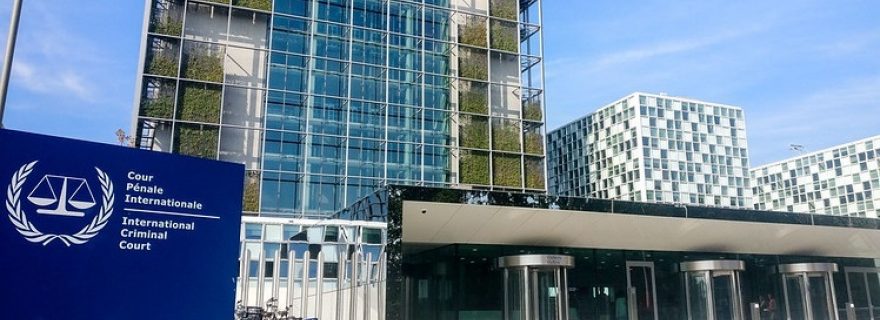A blessing in disguise for the ICC? Trump’s Executive Order 13928
Trump’s sanctions against ICC officials are an opportunity to inquire about the ICC’s desirable strategy regarding investigations into non-parties and powerful states such as the US.
Introduction
On 11 June 2020, US-ICC relations took an unprecedented turn with President Trump adopting Executive Order 13928. The Executive Order was taken following the decision of the ICC Appeals Chamber, on 5 March 2020, to authorise the Prosecutor to investigate, inter alia, the US armed forces and the CIA for war crimes in Afghanistan. The Executive Order enables sanctions against ‘officials, employees, and agents, as well as their immediate family members’ of the ICC. On 2 September, Chief Prosecutor Bensouda and top aide Mochochoko’s assets were blocked.
The situation is expected to improve as the Biden administration announced it will ‘thoroughly review’ sanctions on ICC officials. The recent election of Karim Khan, a UK citizen, as the ICC’s new chief Prosecutor is likely to create further incentive to withdraw the Executive Order. Indeed, the Biden administration will probably perceive sanctioning a national of a P5 member of the UN Security Council as diplomatically unwise. However, there is little hope for more cooperation from the US than a withdrawal of the sanctions. Thus, the Executive Order raises questions that are still current and relevant. Notably, the convergence of condemnations of the Executive Order could create a ‘new wave of solidarity at a time where the ICC is undergoing internal reform efforts’. But now is not the time for empty promises, this must be an opportunity to make actual changes: the Court’s future will depend on ‘its willingness to prosecute the “hard cases” involving powerful countries’, and to move away from its disproportionate focus on African states. This relates to two particular issues.
Prosecuting nationals of non-state parties
The possibility to prosecute cases involving powerful states is clearly limited by their lack of ratification of the Rome Statute. In that regard, the US reiterated its accusation that, by asserting its jurisdiction over nationals of non-parties, the Court is violating the principle of relative effect of treaties. The ICC must not cede to this groundless criticism, and go forward with the investigation on Afghanistan, as it should for an investigation in Palestine. In that regard, the Pre-Trial Chamber’s recent ruling that Palestine is a State Party to the Rome Statute and that the Court’s territorial jurisdiction extends to territories occupied by Israel since 1967 constitutes a major step in that direction.
Indeed, the Rome Statute does not affect the obligations of third parties: territory and nationality are the two most uncontroversial bases of jurisdiction for states. States parties, such as Afghanistan from 2003, simply delegated to the ICC the jurisdiction which they are themselves entitled to exercise.
Rethinking prosecutorial strategies
In light of the limited resources of the Office of the Prosecutor, it must choose between situations and cases. Some regard feasibility, i.e. prospects of investigative and prosecutorial success, as a key consideration. The Pre-Trial Chamber declined to authorise the investigation on Afghanistan, considering such investigation would not be in the ‘interests of justice’ if not feasible. It argued this was the case, inter alia, because of the unlikely cooperation from key states.
The Appeals Chamber overturned the Pre-Trial Chamber’s decision on a technicality, holding that, when the Prosecutor acts proprio motu, the ‘interests of justice’ are part of the Prosecutor’s consideration under Article 15(3) but not the Pre-Trial Chamber’s decision to authorise an investigation under 15(4). However, in an obiter dictum, it specified that the Pre-Trial Chamber’s reasoning was cursory, speculative and lacked consideration for the gravity of the crimes and the interests of victims.
This gives hope of a reconsideration of priorities: the ICC should be less concerned with feasibility and more with the gravity of the alleged crimes. This is also what the Independent Group of Experts, in its 2020 Report on the ICC and the Rome Statute System, seemed to suggest: because of the disparity between the resources and number of preliminary examinations resulting in investigations, the Prosecutor should adopt a higher gravity threshold, while feasibility should not be taken into account with regard to preliminary examinations assessments. After all, the interests of justice are also to provide equal justice.



0 Comments
Add a comment